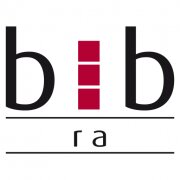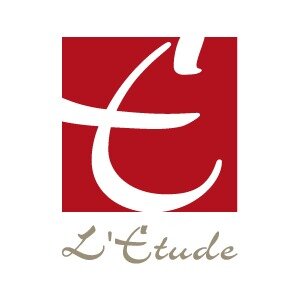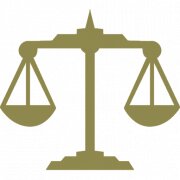Best Education Law Lawyers in Switzerland
Share your needs with us, get contacted by law firms.
Free. Takes 2 min.
Or refine your search by selecting a city:
List of the best lawyers in Switzerland

About Education Law in Switzerland
Education Law in Switzerland encompasses a broad range of legal issues related to the country's educational system. This includes regulations governing public and private schools, higher education institutions, and vocational training programs. Swiss education law ensures that educational institutions maintain specific standards and comply with national and cantonal regulations. As Switzerland is a federal state, responsibility for education is mainly decentralized and handled at the cantonal level, resulting in some differences in laws and policies across the 26 cantons.
Why You May Need a Lawyer
There are several situations where individuals may require legal help in the field of Education Law in Switzerland:
- Disputes between students or parents and educational institutions, such as conflicts over admission, disciplinary actions, or academic assessments.
- Issues related to special education needs, ensuring appropriate accommodations and services are provided.
- Matters involving educational policy compliance and regulatory challenges faced by institutions.
- Legal issues surrounding private education contracts and fees.
- Guidance on student rights and responsibilities in educational settings.
- Assistance with immigration-related matters affecting international students.
Local Laws Overview
Swiss Education Law is characterized by a strong focus on ensuring quality and accessibility across all levels of education. Key aspects of the local laws include:
- Compulsory Education: In Switzerland, education is mandatory for all children, generally from ages 6 to 15, and dictated by cantonal laws.
- Public vs. Private Schooling: While public schools are predominant and free, private schools offer alternative curricula and charge tuition fees. Both are regulated to meet educational standards.
- Higher Education and Vocational Training: Swiss higher education includes universities and universities of applied sciences, both subject to national standards and agreements like Bologna Process for degree recognition.
- Language of Instruction: Education is provided in the national languages (German, French, Italian, and Romansh), depending on the region, with specific cantons determining the language policy in their schools.
- Equality and Non-Discrimination: Laws ensure equal opportunities and prohibit discrimination based on gender, ethnicity, religion, or disability.
Frequently Asked Questions
What is the legal age for compulsory education in Switzerland?
Compulsory education typically begins at age 6 and continues until age 15, though this can vary slightly depending on the canton.
How are public and private schools regulated in Switzerland?
Both public and private schools must meet educational standards set by the cantons; however, private schools have more flexibility in curricula and fee structures.
Are there laws ensuring education for children with disabilities?
Yes, Swiss law mandates that children with disabilities have access to necessary educational accommodations to participate fully in education.
What languages are used in the Swiss education system?
Language of instruction varies by region, utilizing the official languages: German, French, Italian, and Romansh, with cantons setting specific language policies.
Can international students attend Swiss schools?
International students can attend Swiss schools and universities; however, they must comply with visa regulations and may need to pay tuition fees.
What are my options if I disagree with a school's decision regarding my child?
You can first seek resolution through school channels and, if needed, escalate the dispute to cantonal education authorities or consult a lawyer.
How does Switzerland handle vocational training?
Vocational training is an integral part of the Swiss education system, offering apprenticeships that combine practical work experience with classroom learning.
Is homeschooling permitted in Switzerland?
Homeschooling is allowed but heavily regulated, and requirements can vary significantly between different cantons.
How are disputes in higher education institutions resolved?
Disputes are usually handled internally, and if unresolved, legal action might be pursued, potentially involving cantonal education departments or the courts.
What is the Bologna Process in the context of Swiss education?
The Bologna Process standardizes higher education qualifications across Europe, affecting degree framework and recognition in Swiss universities.
Additional Resources
For more information and assistance, consider the following resources:
- Cantonal Education Departments: For specific legal regulations and dispute resolution at the local level.
- Federal Department of Economic Affairs, Education and Research (EAER): Guides national education policy.
- Swiss Federation of Universities of Applied Sciences (FH SCHWEIZ): Provides information regarding policies affecting universities of applied sciences.
- Pro Juventute: An organization offering resources and advocacy for children's rights including education.
- Switzerland's Federal Office for Migration: For guidance on immigration-related issues affecting students.
Next Steps
If you need legal assistance in Education Law, consider the following steps:
- Identify the nature of your issue and gather relevant documentation, such as school communications, contracts, and any correspondence.
- Contact a lawyer specializing in Education Law in Switzerland. They will be able to offer advice tailored to your specific situation and cantonal regulations.
- Utilize local resources such as cantonal education offices, which can provide guidance and intermediary dispute resolution services.
- Consider mediation or alternative dispute resolution methods, which may offer a quicker, less adversarial way to resolve your issue.
Lawzana helps you find the best lawyers and law firms in Switzerland through a curated and pre-screened list of qualified legal professionals. Our platform offers rankings and detailed profiles of attorneys and law firms, allowing you to compare based on practice areas, including Education Law, experience, and client feedback.
Each profile includes a description of the firm's areas of practice, client reviews, team members and partners, year of establishment, spoken languages, office locations, contact information, social media presence, and any published articles or resources. Most firms on our platform speak English and are experienced in both local and international legal matters.
Get a quote from top-rated law firms in Switzerland — quickly, securely, and without unnecessary hassle.
Disclaimer:
The information provided on this page is for general informational purposes only and does not constitute legal advice. While we strive to ensure the accuracy and relevance of the content, legal information may change over time, and interpretations of the law can vary. You should always consult with a qualified legal professional for advice specific to your situation.
We disclaim all liability for actions taken or not taken based on the content of this page. If you believe any information is incorrect or outdated, please contact us, and we will review and update it where appropriate.
Browse education law law firms by city in Switzerland
Refine your search by selecting a city.













